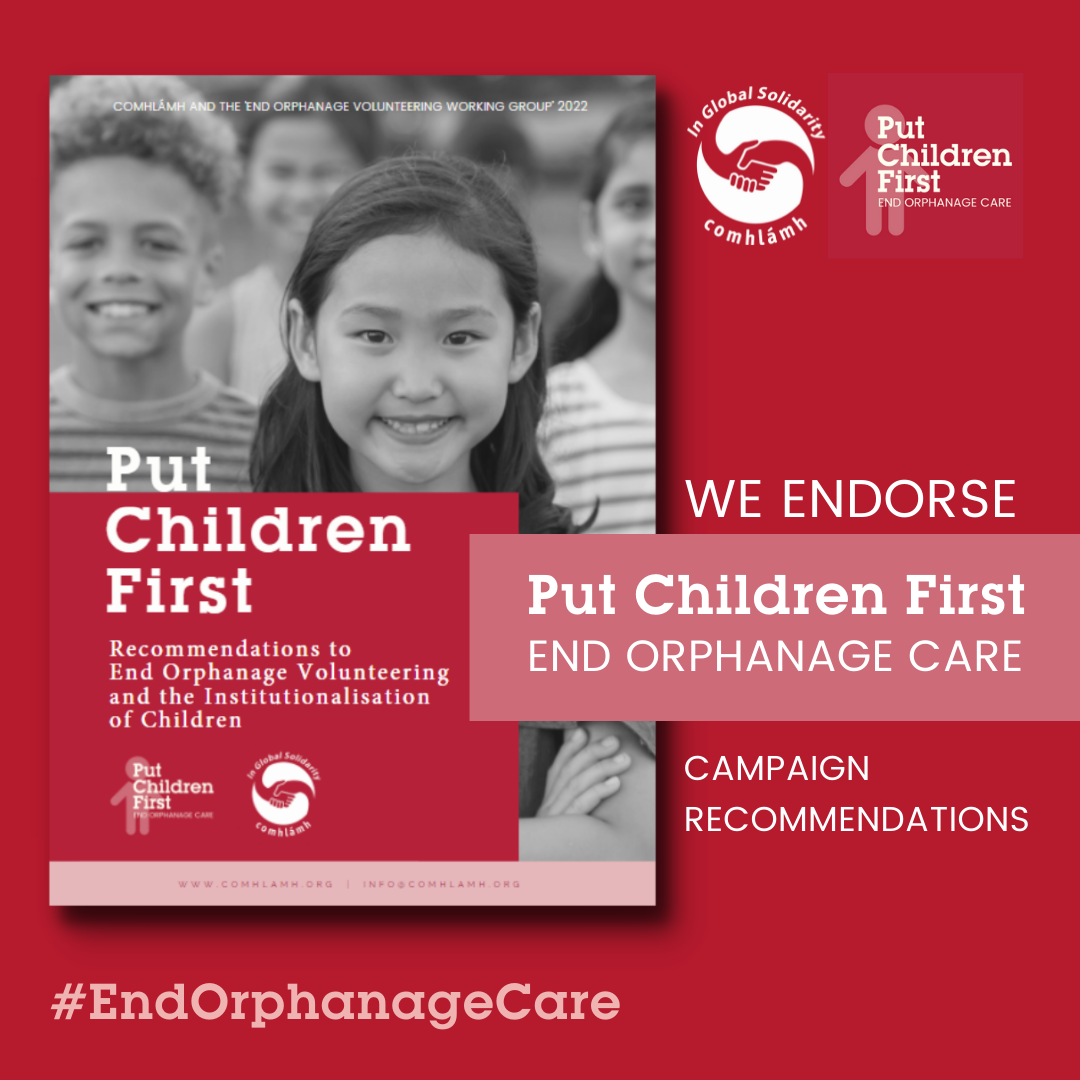Putting Children First
There are few things that tug the heartstrings more than the plight of orphans. To be left without parents and a home, can be a pitiful situation. Throughout history, societies have tried a variety of care models of how to best look after such children: orphanages, placements within families, created family units with house parents for example.
Today, an estimated 5.4 million children live in institutions worldwide, primarily because of poverty, lack of access to health and education services, and discrimination. More than 80% of children living in orphanages have at least one living parent. They have extended family members and communities that could care for them, given the right support. Children with disabilities are 17 times more likely to live in orphanages than their peers.
Even well-run and resourced orphanages, with staff that care about the children, cannot replace the love and stability of family-based care.
International research over many years has demonstrated that institutional care is often harmful to children – harmful to their health, development and wellbeing, and can put them at increased risk of abuse and exploitation. There is also increasing evidence of the links between institutions and trafficking. Reports have shown that many children do not get the promised education or healthcare and typically gain lower levels of literacy and numeracy and fewer educational attainments than their peers.
Reports highlight that the regular turnover of volunteers and visitors to orphanages is harmful to children’s development and wellbeing. It also increases their exposure to abuse and exploitation.
Orphanage volunteering, visiting and overseas donations can also sustain the ‘orphanage industry’ with institutions being set up to meet the demand from well-meaning travellers and donors. There are increasing instances of children being trafficked to populate profit making institutions.
These findings have galvanised a global movement to end orphanage care and volunteering. In 2019 the UN passed a resolution which recognised the harm of orphanage care and orphanage volunteering and called for the end to both. The Republic of Ireland voted in favour of this resolution.
Comhlamh is an umbrella organisation for Irish volunteers who have returned from overseas. It is coordinating a campaign aimed at the Irish government in relation to volunteering overseas and aiding alternatives to institutional childcare.
The campaign has four recommendations:
Recommendation 1
Irish Aid should introduce a dedicated funding stream for care reform strategies, including family and community-based support programmes.
Recommendation 2
The Department of Foreign Affairs should introduce foreign travel advice warning of the harm caused by orphanage volunteering (including the risk of incentivising trafficking) and encouraging people not to visit or volunteer.
Recommendation 3
Irish Aid should recognise the harm of orphanage volunteering and introduce funding criteria that no programmes or activities that involve the sending of volunteers to orphanages will be supported.
Recommendation 4
The Department of Education, and Children, Equality, Disability, Integration and Youth, should develop child-safe guidelines for trips overseas, including guidance not to visit or volunteer in orphanages.
The Connexional Team of the Methodist Church in Ireland is endorsing this campaign along with over 40 other organisations, including Tearfund Ireland, UNICEF, Church Mission Society Ireland, NYCI (National Youth Council of Ireland), Irish Nurses and Midwives Organisation and ISCP (Chartered Physiotherapists and Healthcare Professionals in International Health and Development).
This is not a campaign to close all orphanages worldwide. Nor is it a comment on all orphanages. It is an attempt to challenge volunteering from Ireland which may be perpetuating practices that are less than ideal and a call to the Irish government to support better ways of caring for orphans. Children deserve the best that any society can give them. Therefore, The Methodist Church in Ireland endorses this campaign and prays for a better future for those who have lost their parents and home.
Further information on the campaign and supporting research can be found here.
This article first appeared in the September 2023 edition of the Methodist Newsletter.

